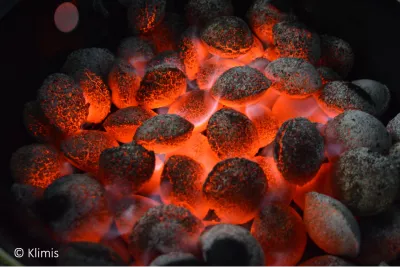General information
RDP Focus Area
- 5C: Renewable sources & waste management
Summary
As demand for energy increases across the world, climate change simultaneously has begun to visibly impact all countries. To mitigate climate change, it is necessary to ensure that economic development will prioritise carbon-neutral bioenergy fuels, especially those that harness energy from agricultural residues.
The family-owned business ‘Klimis’ produces lime putty and quicklime. In the process they use olive stones as a source of heat energy. The olive stones are a waste product from the olive oil production in the region. As the olive pips do not completely combust in this process, a black powder is created as a bioproduct. Reusing this residue offers an opportunity to create an additional source of income and protect the environment from the discarded residue. The business owners experimented for 15 years before developing and finally placing their own olive barbecue briquettes in the Greek market in 1992. They designed and assembled their own machinery from scratch which included mixers, press machines and dryers and then tested if they could produce this new by-product effectively.
Results
The family business created a new technique to generate a ‘green’ product from waste. This protects the environment by reducing waste disposal and is financially beneficial.
Thanks to this new environmentally-friendly product the business increased its income by 50%.
The upcycling of combustion products ensures the efficient use of natural resources without interfering with the life-cycle of olive trees.
This type of barbecue briquette is very advantageous as they emit 30% less carbon monoxide than wood charcoal.

Promoter
VAS. & EK. KottaridI GP
Funding
Operational Programme Competitiveness 2000-2006 - 163 350 (EUR)
Regional Operational Programme 2007-2013 181 455 (EUR)
Keywords
Resources
Documents
contact

